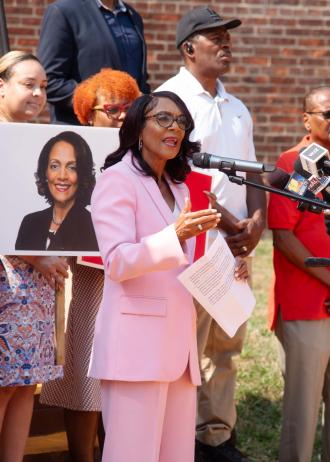The interim Israeli government took the unprecedented step on Monday night of passing emergency regulations to bypass existing law, and equip the Shin Bet domestic intelligence agency and the Israel Police with the powers to help slow the spread of the coronavirus (COVID-19) through technological surveillance.
Two separate emergency regulations were brought out by the government: one for the Shin Bet and one for the police, creating separate mechanisms.
The Shin Bet has been instructed by the government to receive the names of infected people from Israel’s Ministry of Health, and then use its technological tracing capabilities to check back 14 days and track down people the infected got close to.
The names of all of the people who fell within a certain vicinity to the infected person in the last two weeks are then sent by the Shin Bet to the Health Ministry. This list could amount to dozens, hundreds or even thousands of people.
The Shin Bet’s powerful technology for surveilling such movements is usually in the service of combating terrorism, but some of it will now go to the new mission of slowing the spread of Sars-CoV-2.
After receiving the list of those who may have been infected by the person in question, the Health Ministry can get in touch with those people and instruct them to go into a two-week isolation period.
The ministry can then forward the names on the list to the Israel Police, which can also use technological surveillance services and work with cell-phone companies to monitor their movements, and make sure that isolation orders are being kept.
The government passed emergency legislation for this, rather than expand the Shin Bet Law and provide the security forces with added powers through the more traditional route.
The reason the government acted this way is all because of timing. In order to expand the Shin Bet Law, it’s first necessary to receive the approval of the Knesset’s Shin Bet subcommittee, which operates under the Foreign Affairs and Defense Committee.
The latter committee was in the process of discussing the changes when a new Knesset has been sworn in on Monday, delaying the proceedings. The government then decided to accelerate the process and employ the emergency regulations, thereby bypassing the Shin Bet Law altogether.
‘These are exceptional times’
On Monday, Shin Bet director Nadav Argaman stated that his organization has “answered the request of the professional echelon in the Health Ministry, out of national responsibility and an understanding that we have the ability to save the lives of Israeli citizens.”
When it became clear that other authorities lack the technological ability to conduct the task, the Shin Bet took on the job, he added. A series of meetings between the Shin Bet, the Justice Ministry and Attorney General Avichai Mandelblit then followed, said Argaman, until the attorney general approved the use of the surveillance technology.
“The Shin Bet is aware of the fact that this form digresses from its continuous activities in counter-terrorism, and therefore, the request was discussed and approved by the attorney general, and set supervision mechanisms were established in the process,” said Argaman.
“As the head of the service, I would like to make clear that the sensitivities of this matter are highly clear to me, and therefore, I have instructed that only a very small team of people from the service will deal with the issue, and that the information will not be stored in the Shin Bet,” he added.
The intelligence service will send the data directly the Health Ministry’s director-general or another health chief, who pledged to use the information only to save lives. The Shin Bet will play no part in enforcement, stressed Argaman.
Blue and White Party leader Benny Gantz criticized the manner in which the government created the new mechanism, stating, “These are exceptional times that, unfortunately, call for exceptional measures in order to save lives. That said, we cannot surrender transparency and oversight.”
He added that a functional parliament, even and especially in a state of emergency, is “a hallmark of democracy.”

















